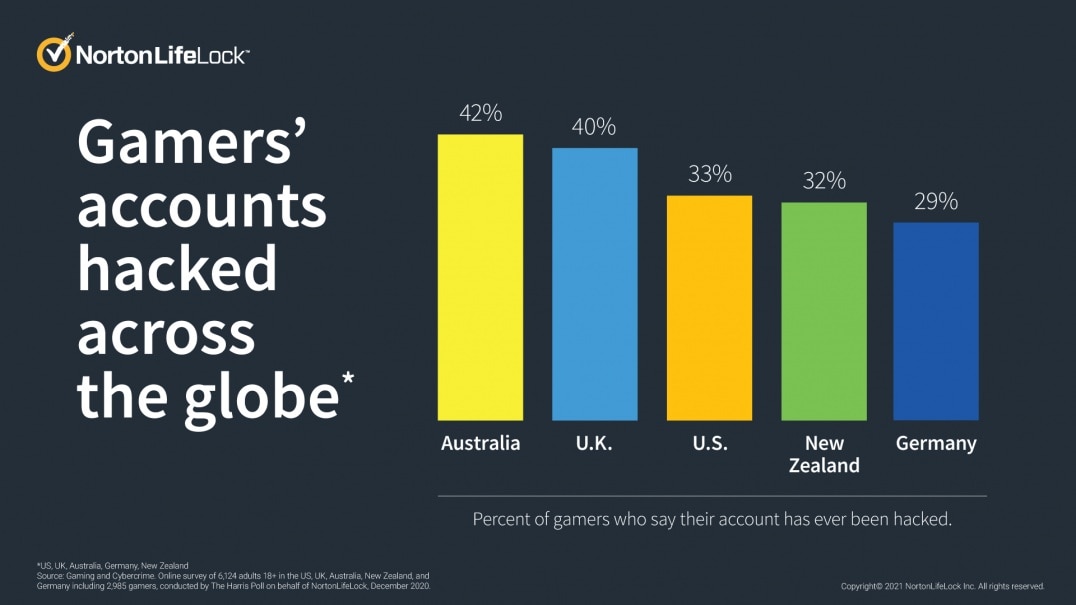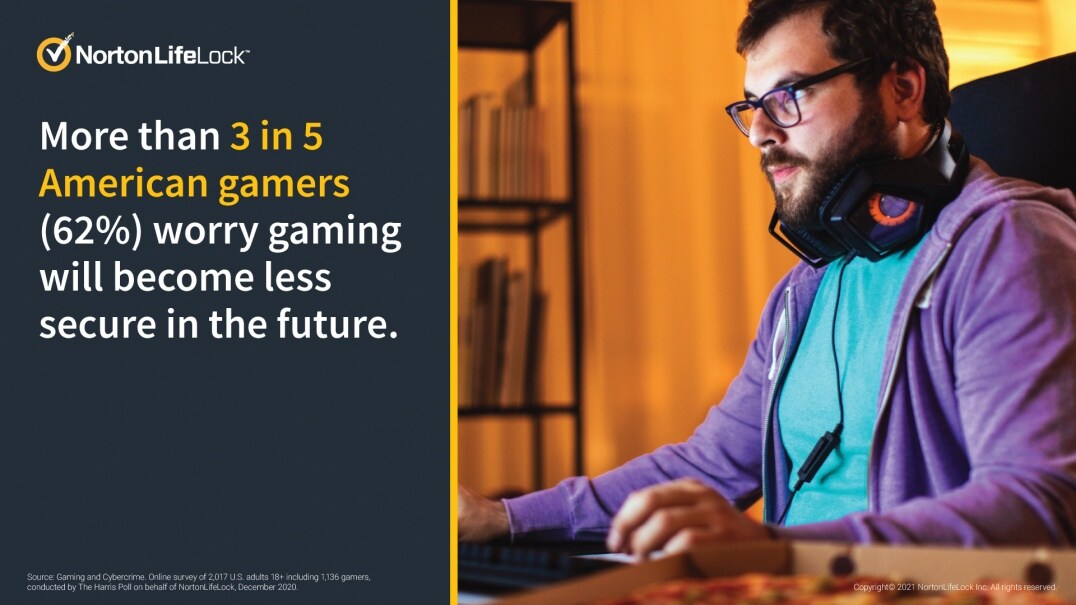A Look Into Gaming and Cybercrime Amid The Pandemic

With online gaming on the rise during the pandemic, cybercriminals have taken aim on the lucrative industry.
Gamers’ profiles are increasingly becoming an attractive target for hackers. With online gaming on the rise during the pandemic, cybercriminals have taken aim at the lucrative industry. Gamers’ profiles are increasingly becoming an attractive target for hackers. One of the main alluring factors is the valuable personal data connected to these accounts. For example, players often link information like their bank account or credit card number to their profiles. Similarly, the digital content that gamers purchase to build out their profiles — from in-game currency to special weapons or avatar skins — can make their accounts quite attractive to hackers, especially if they plan to put them up for sale on the dark web.
As players pour their passion, time and money into gaming, they’re notoriously apprehensive about gaming antivirus software just because they don’t want to be interrupted during gameplay or experience slowness, or they may think the free stuff is “good enough.” As it turns out, gamers may underestimate their likelihood of being hacked, as 35% of gamers from across the globe* report that they’ve had their gaming account hacked. Practising safe gaming is more important now than ever before.
That’s one of the findings of our Gaming & Cybercrime Study, which surveyed nearly 3,000 gamers across the globe to gauge the cyber risks they face today and their understanding of the consequences of these potential risks when gaming online.
Ready Player One
Whether you’re a casual candy-crusher or a hardcore gamer, if you’re like me, you’re spending more time online gaming than ever before.
Unfortunately, hackers have taken notice. A lot of people downplay the potential cyber dangers of online gaming, but the truth is, a hacked gaming account could lead to real-life damage. Last summer, a widely popular gaming company was hacked, exposing the login information of 300,000 users’ accounts. Hackers accessed the payment services linked to users’ accounts, including credit cards. Users reported missing funds from their gaming accounts, and in some cases, discovered that their accounts were used to make fraudulent purchases. Luckily, specific credit card details weren’t exposed, but one can imagine how a hack like this could potentially lead to something as malicious as identity theft.
We conducted our Gaming & Cybercrime survey to help gamers of all levels better equip themselves with the tools they need to keep their accounts — from their personal information to their badges and achievements — secure when gaming online.

What You Need to Know
Our survey found that there’s a concerning gap between gamers’ understanding of their cyber risk and their likelihood of being hacked, underscoring the need for gamers to take proactive steps to protect themselves online. Over half of Australian gamers (59%) say they would never fall for a gaming scam. Across the globe, a significant percentage of gamers in the U.S. (73%), New Zealand (52%), the UK (50%) and Germany (46%) share this same confidence, believing their gaming account(s) will never be infiltrated by hackers.
This overconfidence is also interesting to compare against gamers’ feelings about the future of gaming security. Our survey found that many are concerned about the trajectory of online gaming cyber risks, with more than 3 in 5 (62%) American gamers admitting they worry gaming will become less secure in the future.

Most people may not consider a game hack to be as harmful as something like a bank-account breach — but to us gamers who have spent a lot of time and money building their profile, having an account hacked or stolen can be devastating. If their gaming account were hacked, our study found at least half of U.S. gamers would be very upset or devastated if they lost:
- Their digital currency (64%), including nearly one-quarter (24%) who would be devastated.
- Their account (62%), including nearly one-quarter (23%) who would be devastated
- Their digital items earned or purchased (e.g., skins, inventory) (55%)
- The progress in the game (54%)
- Their character (49%)
In fact, nearly 1 in 5 U.S. gamers (19%) would rather have their browsing history published publicly than have their gaming account hacked. 15% would rather have their social media account hacked, 12% would rather have their email account hacked, and even 6% would rather have their bank account hacked than have their gaming account infiltrated.
Interestingly, despite these risks and gamers’ concerns about the future of gaming security, almost half of U.S. gamers (46%) say they don’t think twice about sharing personal information when signing up for gaming accounts. In fact, two-thirds of American gamers (65%) say they trust gaming companies will protect their personal information and data. While gaming companies have measures in place to keep your accounts safe, unfortunately hackers can get through sometimes.
Leveling Up Your Cybersecurity
Here at NortonLifeLock, we encourage gamers to take proactive steps to more actively protect themselves when gaming online. Our flagship antivirus security product Norton 360 for Gamers is now available to help protect PC gamers in 38 countries around the world, offering advanced, multi-layered protection and features built specifically for gamers, like Dark Web Monitoring for gamer tags.
Dark Web Monitoring monitors gamer tags and notifies gamers if their information was found on the dark web. Other Norton 360 for Gamers features include PC SafeCam, which helps block attempts to access your webcam to save you from potential stream bans and embarrassments, and Password Manager, which helps enable you to safeguard your passwords, credit card information and other credentials online to keep your gaming accounts secure.
To learn more about Norton 360 for Gamers, visit www.norton.com/products/norton-360-for-gamers.
*Australia, Germany, New Zealand, US and UK
No one can prevent all cybercrime. Not all products, services and features are available on all devices or operating systems. System requirement information on norton.com.
Dark Web Monitoring in Norton 360 plans (without LifeLock) defaults to monitor your email address only. Log in to your account to enter more info for monitoring purposes. If you are a current LifeLock member, you can manage those settings in the LifeLock member portal.
Editorial note: Our articles provide educational information for you. Our offerings may not cover or protect against every type of crime, fraud, or threat we write about. Our goal is to increase awareness about Cyber Safety. Please review complete Terms during enrollment or setup. Remember that no one can prevent all identity theft or cybercrime, and that LifeLock does not monitor all transactions at all businesses. The Norton and LifeLock brands are part of Gen Digital Inc.




Want more?
Follow us for all the latest news, tips, and updates.